QuestionOur 12-year-old lab Stuart has recently begun urinating in the house, something he has never done. He only does it on the floor and during the night. We always hear him and wake up, so we yell "Bad dog!" and put him outside. The next night, he did it again. It started very suddenly, and it is only a small amount of urine. This is why I tend to think it's not a medical problem, but I want to be sure because I'd feel awful scolding him if he couldn't help it. We have had a lot of changes recently -- moved into a new house, adopted a kitten -- and have been spending a lot less time with him than usual. My husband thinks it's an attention thing. This morning we woke up and as we were putting him out he stopped and went right in the hallway. A few minutes later we discovered a bowel movement on the bedroom floor. Please help, I can't take this anymore! Stuart has always been the best-behaved, most well-trained dog I'd ever know. Thank you.
AnswerDear Elizabeth,
Thanks for the question. Regardless of your assumptions, it's most likely due to a medical problem. Have your dog checked by your vet, not just a urinalysis, but a complete medical checkup with complete blood count, blood chemistry profile, thyroid, et cetera.
Scolding your dog is not really a clear method to communicate and it's obviously not working, so . . . no need to continue on that path - is there?
I'll be happy to offer more specific tips after you have ruled out medical problems. I will need more information, but before we dive into a question and answer marathon, get that fellow checked out!
If you are curious about other causes, you might view some of my previous answers about urination problems. This board is dripping with-em!(smile)
Happy Training!
AT
http://howsbentley.com
>>>>>>>>>>>>>>>>>>>>>>>>>>>>>
Follow Up-
Dear Elizabeth,
Here's a sincere attempt to address your issues with my initial response.
I hope you find this follow-up more informative and less condescending than my earlier quick reply. I can't say that I've changed any of my original advice but I have offered you reasons for my thoughts.
Inside elimination is labeled according to the situation in which it occurs.
The reasons or labels are: medical problem(s),
incomplete house training,
submissive urination, excitement urination
marking behavior,
location preference,
pre-learned areas,
pre-soiled areas,
attention seeking behavior,
separation anxiety,
inadequate access
OR any combination of all the listed reasons.
Once we come to a conclusion as to the correct label, I'll give you specific instructions on how to address the problem.
Let's go down the list -
MEDICAL PROBLEM
I do understand how you tend to think "it's not medical problem".
Stuart urinates and defecates inside. Both behaviors are elimination behaviors, with seemingly unrelated body organs controlling them. It's always possible that the urination is medical in cause and the defecation is behavioral.. OR vice-versa. . . OR both are due to medical problems.. . OR both are due to behavioral problems.
There are hallmarks or flags for medical elimination problems.
Here are the hallmarks present in your case that indicate a high probability of medical issues.
He is a 12 year old, mid-sized dog breed.
He is house trained and never had accidents inside the house - before now.
The behavior indicates a sudden change.
The urination occurred in the night, when you were in bed and asleep.
The urination did not represent full-bladder elimination - it was only a small amount. Frequent, small amounts of urine are one of the hallmark symptoms of a Urinary Tract Infection, or UTI.
Medical causes rank very high on the list so far. Let's go down the list and see about the others.
INCOMPLETE HOUSETRAINING - You stated "something he has never done", so I ruled out incomplete housetraining.
SUBMISSIVE OR EXCITEMENT URINATION - To simply . . in most cases, both of these occur when someone or some animal or something either surprises, threatens or stimulates the dog.
Your description about "always hear him and wake up" leads me to believe that nothing is present and nothing is happening that would indicate either submissive or excitement urination.
I ruled out excitement and submissive urination.
MARKING BEHAVIOR
Marking is usually a response to social and olfactory stimuli. In my experience most "sudden onset" marking cases involved intact males depositing small amounts of urine or fecal matter in response to a new male or female being introduced into their environments. You made no mention of another dog introduced in the environment and Stuart urinated in the middle of the night, not quite the normal pattern for marking behavior. I ruled out marking behavior.
LOCATION PREFERENCE - PRE-LEARNED AREAS - PRE-SOILED AREAS
These are common causes for repeated mistakes during the house training process. These usually compliment incomplete house training - after the house training process has failed. . . In order for a preference to be established it must occur several times. I di not think that the behavior has been occurring long enough to establish a preference - and this would not explain the very first time he did it , how could he have a preference? (that's what I asked myself when ruling this one out!)
ATTENTION SEEKING BEHAVIOR
Since he first urinated when you were asleep and has done it again when you were asleep, I ruled out attention-seeking. Dogs that want attention from sleeping people don't urinate. . . they bark, jump on the bed, nip, lick, whine, scratch at the door, et cetera.
Dogs that are being put out do not seek attention either. They already have our attention.
If he barked at you while you were watching TV and then urinated, I might consider attention-seeking. Also, you mentioned that "has always been the best-behaved, most well-trained do I'd ever know". I believe you! SO I don't imagine that he would all of a sudden start urinating and defecating to get your attention. I ruled out attention-seeking.
SEPARATION ANXIETY
There are four hallmarks of separation anxiety - inside elimination, excessive salivation, excessive vocalization, and destructive behaviors directed a entry and exit points.
BUT the very first rule out is - Does the behavior occur in the absence of the people?
In addition, dogs with separation anxiety rarely warrant "the best-behaved, most well-trained" status. Dogs don't get separation anxiety overnight. So, I ruled out separation anxiety.
That leaves me with
INADEQUATE ACCESS
Yes, this could explain both the situations you've described
I hesitated to mention this in my first response because most people, (especially people who obviously care enough to seek help and who love their dog so very much) are very rarely guilty of inadequate access. I ruled this one out, because of your sincere attempts to give me adequate information (of which you did a good job). I assumed that you give your dog adequate opportunities to eliminate outside. I ruled out inadequate access.
Most of the information I have leads me to believe it's a medical issue. It could be related to a change in diet.
I understand why you might be prompted to yell "Bad Dog" when you wake up in the night and see your dog eliminating on your floor. I've yelled "Bad Dog" or "NO" at many dogs in many situations. In my opinion and in my experiences I've found that scolding a dog is not really the best way to communicate. My suggestion is to discontinue this method of addressing the situation. It's rarely if ever effective for solving inside elimination problems.
The bottom line is that I believe your best next step is to rule out medical causes and go forward from that point.
If you want text book references about inside elimination disorders, check out these books, - - - Clinical Behavioral Medicine for Small Animals by Karen Overall is one good source. Look for three volume set of books by Steve Lindsey.
Either of those mentioned are the books that a veterinary behavior professional would consider text books. Your local library may have copies. Order them from amazon.com or dogwise.com.
Happy Training!
AT
http://www.howsbentley.com

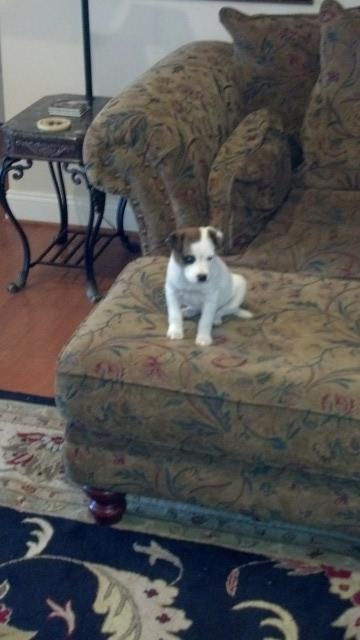 new puppy
Question
bella
I adopted a puppy from the humane
new puppy
Question
bella
I adopted a puppy from the humane
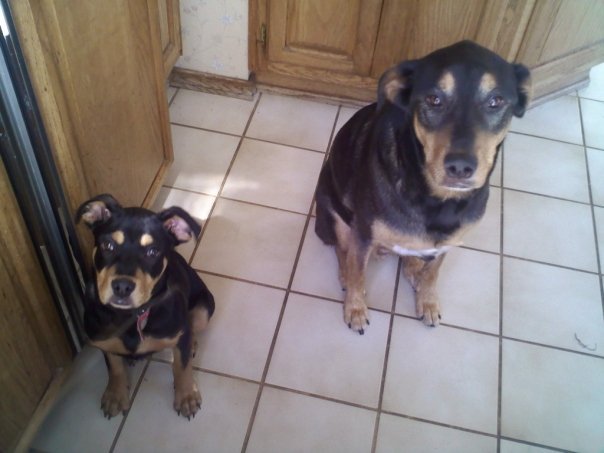 Dominant dog issues
Question
my 2 dogs
I have a 6 year old rottie/shepard m
Dominant dog issues
Question
my 2 dogs
I have a 6 year old rottie/shepard m
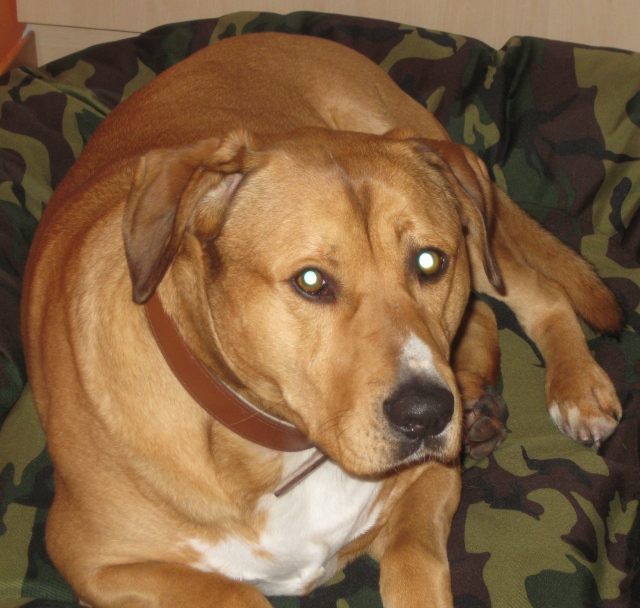 Strange dog behaviour ; organic brain syndrome in canine;
Question
Alfie
All of a sudden my 4 year old dog does n
Strange dog behaviour ; organic brain syndrome in canine;
Question
Alfie
All of a sudden my 4 year old dog does n
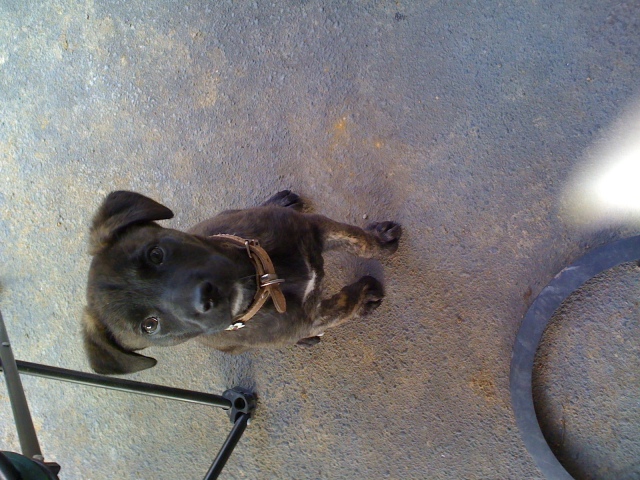 Puppy Teething, Jumping, Bathing and Ear drops
Question
Puppy Trinnie
Hi, I have a 5 & 1/2 month old S
Puppy Teething, Jumping, Bathing and Ear drops
Question
Puppy Trinnie
Hi, I have a 5 & 1/2 month old S
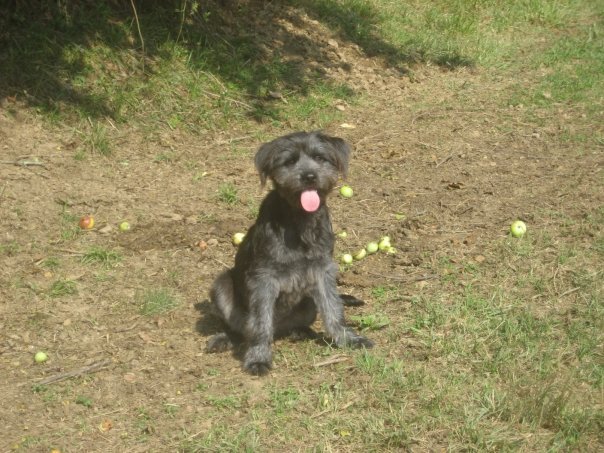 Help with my best friend :)
Question
cash
Hello!
&
Help with my best friend :)
Question
cash
Hello!
&